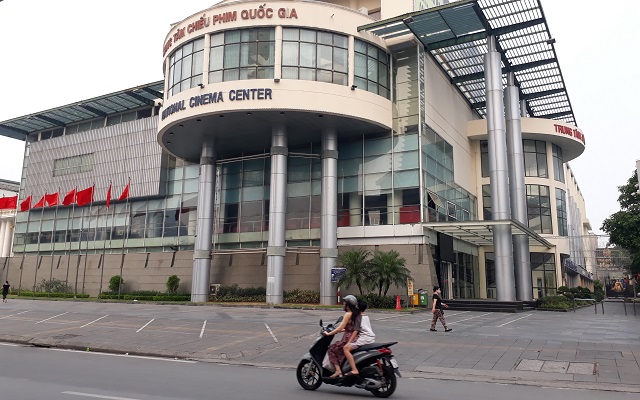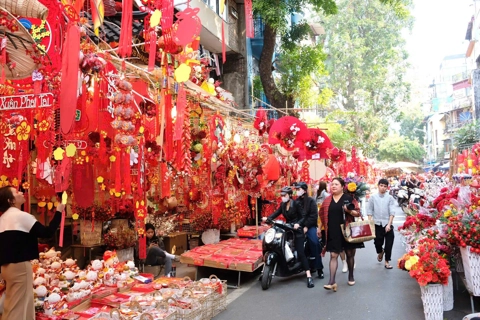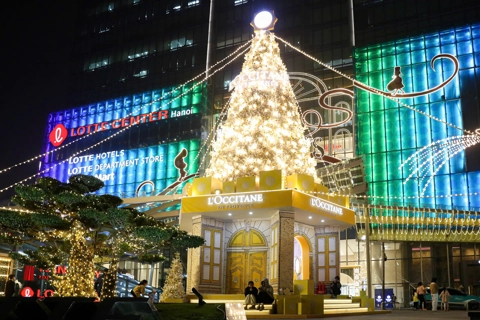Careful consideration required for cinema reopening
Film screening plays a vital role in the people’s spiritual and cultural life, but given the severe pandemic situation at the moment, this cannot be categorized as essential service, said a senior official.
The cinema industry should not be considered an essential service during the Covid-19 pandemic and thus the reopening of cinemas needs careful consideration, said an official from the Ministry of Culture, Sport and Tourism.
Vi Kien Thanh, Director of the ministry’s Cinematography Department, gave his view in response to a proposal from major movie distributors and cineplex operators, including CGV, Lotte, Galaxy and BHD, for the resumption of such activities on condition that Covid-19 countermeasures are met.
| National Cinema Center closed as a result of the Covid-19 outbreak. Photo: Thanh Hai |
“Film screening plays a vital role in the people’s nonmaterial and cultural life, but given the severe pandemic situation at the moment, this cannot be categorized as essential service,” said Thanh, while calling for the return of cinemas once the pandemic is fully contained.
Regarding the suggestion for the government to provide supporting measures such as reduction of personal income and value-added taxes for the movie industry, said the agency would consult with competent authorities to find a solution.
“The Department plans to work with local authorities to encourage people to go to cinemas once they are allowed to reopen,” Thanh added.
“The process of film approval and classification would be sped up to ensure they would hit movie theaters faster,” he continued.
Tran Doan Hieu, a local from Trung Hoa Ward, Cau Giay District, voiced his opposition to the idea as he pointed out that people in the cinema could hardly comply with anti-virus measures.
“People would have to take off their masks when they eat popcorn and may be one or two would talk in between, so the risk of virus transmission is high. In this case, cinema could even become an infection cluster,” Hieu told Hanoitimes.
Fighting for survival
Major players in Vietnam’s movie industry previously claimed the Covid-19 outbreak since early 2020 has dealt a major blow to their operation as all cinemas were forced to close.
While the pandemic continues to persist with growing uncertainties surrounding their future as each day goes by, these companies called for the film screening to be included in the category of essential services, which would be provided with strict measures to keep movie houses safe.
Media communicator of the CGV said as of present, only three out of 81 cinemas owned by CGV are open. Directors of “Gai gia lam chieu” (The Royal Bride) movie Bao Nhan and Namcito said their movie was screened for months, but they have not received their share of box office revenue.
“How long can the industry survive without support from the government?” they asked.
Businesses and production activities are considered essential services during the Covid-19 pandemic include: Supermarkets (except for entertainment and on-site dining services); shopping malls; street markets; convenience stores and mini supermarkets (except for on-site dining services); grocery stores; chain stores selling agricultural products or medicines; health care services; postal services; banking and electronic payment services; petrol, gas and oil sellers; funeral services, cemeteries, cremation services; and social protection facilities. Production and trading of essential goods including production, processing of food, fruit, pharmaceuticals, medicines, medical equipment and supplies for pandemic prevention and control and national security purposes; services of electricity and water supply and environmental sanitation; livestock and poultry farms; aquaculture, clean water supply plants, factories for manufacturing medical masks, factories producing bottled water and juice. |










